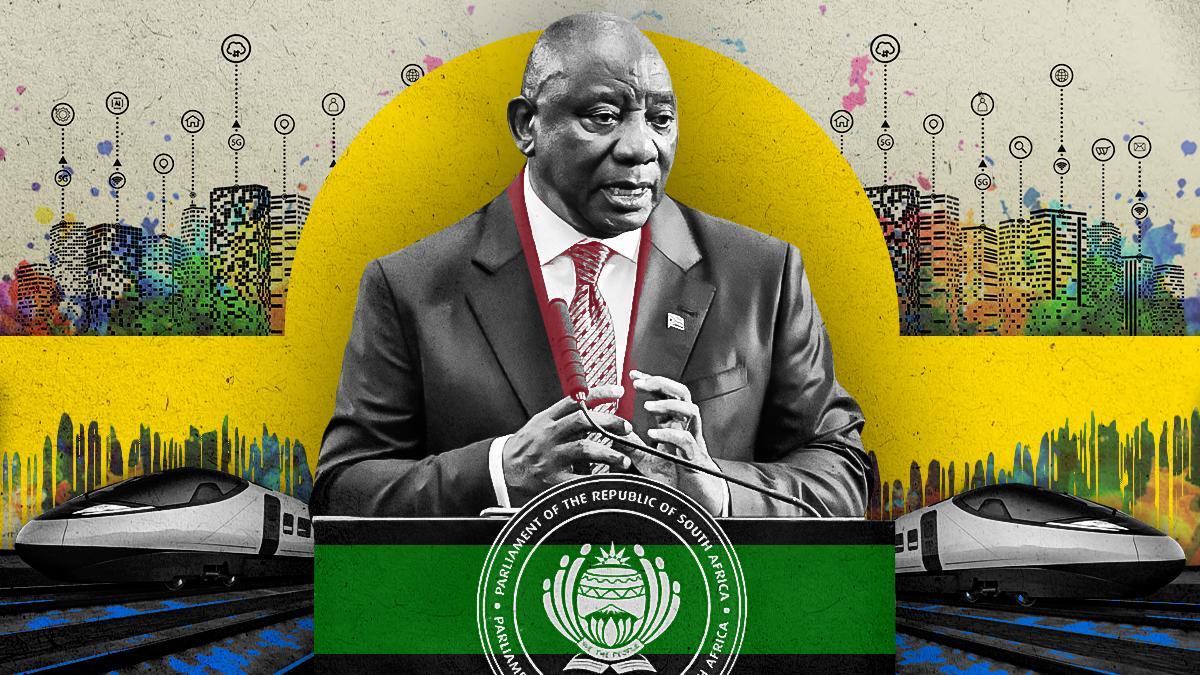Africa-Press – South-Africa. President Cyril Ramaphosa has it the wrong way round in searching for consensus before making a decision, when positive change in South Africa has historically come from an individual taking action that may be unpopular.
The search for consensus prevents decisive action from being taken to address South Africa’s myriad crises, even when the solutions appear to be relatively simple.
While Ramaphosa admits South Africa is facing a crisis, at least economically, he has been unwilling to take action to resolve the issues handicapping the local economy.
This is feedback from political analyst Dr Frans Cronje, who explained to the second annual BizNews Investment Conference that South Africa appears to be undergoing a major transition in a similar fashion to 1994, albeit slightly different.
As with the 1990s, a dominant political force is seeing its power over the country slip amid economic and financial crises.
Outright collapse in the 1990s was averted by FW de Klerk and Nelson Mandela taking decisive action, without waiting for widespread support or consensus to appear.
This is something Ramaphosa has failed to do so far, despite South Africa finding itself at the tail-end of a decade of stagnant economic growth, facing a financial crisis, and increased international pressure.
Cronje said the solutions are relatively simple to get South Africa out of its crisis, with Ramaphosa only having to do three things.
This includes using South Africa’s coal reserves to create an energy surplus, ending the taxation of capital on arrival, and concessioning off the country’s ports and railways.
However, this requires decisive leadership, with Cronje explaining that, in these situations, the President cannot afford to wait to build consensus.
“To form a movement to do it is almost the wrong way around. It is more often the case that great political leaps are taken by individuals who pull things with them,” Cronje said.
Cronje pointed to De Klerk’s momentous speech in February 1992, which released Mandela from prison among other things, and set South Africa on the path towards democracy.
This speech was conducted with only four Cabinet members supporting De Klerk’s stance on South Africa’s future.
“It is my understanding that FW, at the time of the transition, simply told his colleagues that this is what we will do and pulled them with him,” Cronje said.
Another example was Mandela’s speech outlining the ANC’s economic policy for South Africa once the party ascended to power.
“Mandela’s first economic policy speech after being released from prison was delivered before his party had its policy conference,” Cronje said.
“He needed to preempt the conference and dictate the policy because if the conference dictated the policy, then the ANC would have been in the position it now finds itself in thirty years ago.”
Ramaphosa has it the wrong way round
Dr Frans Cronje
Cronje explained that Ramaphosa’s approach is the complete opposite of De Klerk’s and Mandela’s during South Africa’s last great transition.
“Ramaphosa’s approach, the complete opposite, is to try to find consensus and unity to build some movement to move ahead,” Cronje said.
“I mean, the results speak for themselves. So, I think it is a matter of key individuals, they don’t all have to be politicians, saying these are the things we are going to do.”
Apart from Ramaphosa’s consensus-driven leadership, the President is also held back by the ANC’s structural inefficiencies and the looming elective conference in 2027.
“The ANC has a structural immunity against reform. It has immunised itself to reform through its extensive structural processes,” Cronje said.
He said that even if some senior leaders of the ANC agree about what to do and see what needs to be done to save South Africa, it cannot get the support of the party behind it.
“It’s board, the National Executive Committee, has about 100 members drawn from every possible perspective of life you can imagine, from the ideological to the criminal to the just not very good,” Cronje explained.
“The chairman of the board, that is what Mr Ramaphosa is, is a sort of non-executive chairman and he sees his role as facilitating a discussion between the hundred and no decision must be taken until there is complete agreement about what to do.”
If that means there needs to be another meeting, then the discussion will continue at a later date until consensus is reached.
“If you ran anything, any company along those lines, you would be in trouble. You have a weak chairman and a board with conflicting objectives, let alone 100 people on it, and your competitors are taking big bites out of you – you will never turn the thing around,” Cronje said.
This prevents the ANC, which is still the dominant political force in South Africa, from taking decisive action regarding the country’s crises and its future.
Furthermore, it limits the scope of what President Ramaphosa is able to say or do when leading the country, with a constant search for consensus, preventing decisive leadership.
“I think the ANC immunised itself to reform through its structures, exacerbated by the manner of its leader,” Cronje said.
“Therefore, while it can agree with you and hate what is happening, it can see the consequences, and it knows it is the biggest loser, so it cannot act.”
“And so, it is not a question of not knowing and not understanding or not fearing the effects, but that there is a structural impasse and they cannot get past that.”
For More News And Analysis About South-Africa Follow Africa-Press






